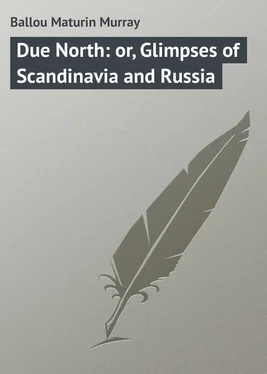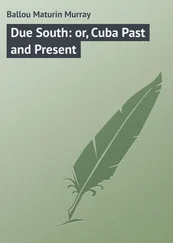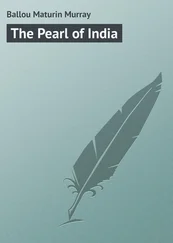Maturin Ballou - Due North - or, Glimpses of Scandinavia and Russia
Здесь есть возможность читать онлайн «Maturin Ballou - Due North - or, Glimpses of Scandinavia and Russia» — ознакомительный отрывок электронной книги совершенно бесплатно, а после прочтения отрывка купить полную версию. В некоторых случаях можно слушать аудио, скачать через торрент в формате fb2 и присутствует краткое содержание. Жанр: foreign_prose, Путешествия и география, на английском языке. Описание произведения, (предисловие) а так же отзывы посетителей доступны на портале библиотеки ЛибКат.
- Название:Due North: or, Glimpses of Scandinavia and Russia
- Автор:
- Жанр:
- Год:неизвестен
- ISBN:нет данных
- Рейтинг книги:3 / 5. Голосов: 1
-
Избранное:Добавить в избранное
- Отзывы:
-
Ваша оценка:
- 60
- 1
- 2
- 3
- 4
- 5
Due North: or, Glimpses of Scandinavia and Russia: краткое содержание, описание и аннотация
Предлагаем к чтению аннотацию, описание, краткое содержание или предисловие (зависит от того, что написал сам автор книги «Due North: or, Glimpses of Scandinavia and Russia»). Если вы не нашли необходимую информацию о книге — напишите в комментариях, мы постараемся отыскать её.
Due North: or, Glimpses of Scandinavia and Russia — читать онлайн ознакомительный отрывок
Ниже представлен текст книги, разбитый по страницам. Система сохранения места последней прочитанной страницы, позволяет с удобством читать онлайн бесплатно книгу «Due North: or, Glimpses of Scandinavia and Russia», без необходимости каждый раз заново искать на чём Вы остановились. Поставьте закладку, и сможете в любой момент перейти на страницу, на которой закончили чтение.
Интервал:
Закладка:
Ballou Maturin Murray
Due North or Glimpses of Scandinavia and Russia
PREFACE
About five years ago, the Author, having then just returned from circumnavigating the globe, was induced to record his experiences of the long journey, which were published in a volume entitled "Due West; or, Round the World in Ten Months." The public favor accorded to this work led, a couple of years later, to the issuing of a second volume of travels, upon the Author's return from the West Indies, entitled "Due South; or, Cuba, Past and Present." The popular success of both books and the flattering comments of the critics have caused the undersigned to believe that a certain portion of the public is pleased to see foreign lands and people through his eyes; and hence the publication of the volume now in hand. These pages describing the far North, from which the Author has just returned, – including Norway, Sweden, Russia, and Russian Poland, – seem naturally to suggest the title of "Due North." Without permitting prejudice to circumscribe judgment in treating of Russia, the effort has been to represent the condition of that country and its Polish province truthfully, and to draw only reasonable deductions. This special reference is made to the pages relating to the Tzar's government, as it will be found that the Author does not accord with the popularly expressed opinion upon this subject.
M. M. B.Boston, March, 1887.
CHAPTER I
Having resolved upon a journey due north, twenty days of travel over familiar routes carried the author across the Atlantic and, by the way of Liverpool, London, Paris, and Hamburg, landed him in Copenhagen, the pleasant and thrifty capital of Denmark. As the following pages will be devoted to Scandinavia, Russia, and Russian Poland, this metropolis seems to be a proper locality at which to begin the northern journey with the reader.
It was already nearly midnight when the Hôtel D'Angleterre, fronting upon the Kongens Nytorv, was reached. So long a period of uninterrupted travel, night and day, rendered a few hours of quiet sleep something to be gratefully appreciated. Early the next morning the consciousness of being in a strange city, always so stimulating to the observant traveller, sent us forth with curious eyes upon the thoroughfares of the Danish capital before the average citizen was awake. The importunities of couriers and local guides, who are always on the watch for visitors, were at first sedulously ignored; for it would be foolish to rob one's self of the great pleasure of a preliminary stroll alone amid scenes and localities of which one is blissfully ignorant. A cicerone will come into the programme later on, and is a prime necessity at the proper time; but at the outset there is a keen gratification and novelty in verifying or contradicting preconceived ideas, by threading unattended a labyrinth of mysterious streets and blind alleys, leading one knows not where, and suddenly coming out upon some broad square or boulevard full of unexpected palaces and grand public monuments.
It was thus that we wandered into the old Market Square where Dietrick Slagheck, Archbishop of Lund and minister of Christian II., was burned alive. A slight stretch of the imagination made the place still to smell of roasted bishop. "Is this also the land of wooden shoes?" we asked ourself, as the rapid clatter of human feet upon the pavements recalled the familiar street-echoes of Antwerp. How eagerly the eye receives and retains each new impression under such circumstances! How sharp it is to search out peculiarities of dress, manners, architecture, modes of conveyance, the attractive display of merchandise in shop-windows, and even the expression upon the faces of men, women, and children! Children! if any one says the Danish children are not pretty, you may with safety contradict him. Their delicately rounded, fresh young faces are lit up by such bright, turquoise-colored, forget-me-not blue eyes as appeal to the heart at once. What a wholesome appetite followed upon this pioneer excursion, when we entered at breakfast on a new series of observations while satisfying the vigorous calls of hunger, each course proving a novelty, and every dish a fresh voyage of gastronomic discovery!
Copenhagen was a large commercial port many centuries ago, and has several times been partially destroyed by war and conflagration. It has some two hundred and fifty thousand inhabitants, and is about six miles in circumference. The site of the city is so low as to render it necessary to protect it from the waters of the Baltic by artificial embankments. Like Amsterdam and Venice, it may be said to possess "remarkable water-privileges." We were told that the citizens were making earnest remonstrance as to the inefficient drainage of the city, which is believed to be the prime cause of a somewhat extraordinary percentage of mortality. In past times it has more than once been visited by the plague, which so late as 1711 caused the death of over twenty-eight thousand of its inhabitants. It is only some thirty years since, that over five thousand persons died here of cholera in one season. Fevers of a typhoid character prevail annually, which are no doubt with good reason attributed to want of proper drainage. Notwithstanding Copenhagen is situated so nearly at tide level, modern engineering could easily perfect a system of drainage which would render it independent of this circumstance. The safe and spacious harbor is formed by the channel between the islands of Zeeland and Amager, where there is ample depth and room to answer the demands of a far more extended commerce than the city is ever likely to maintain. The houses are mostly of brick, some of the better class being built of Norwegian granite, while the newer portion of the town presents many examples of fine modern architecture. The streets are of good width and laid out with an eye to regularity, besides which there are sixteen spacious public squares. Taken as a whole, the first impression of the place and its surroundings is remarkably pleasing and attractive. As one approaches the city, the scene is enlivened by the many windmills in the environs, whose wide-spread arms are generally in motion, appearing like the broad wings of enormous birds hovering over the land and just preparing to alight. One is hardly surprised that Don Quixote should mistake them for palpable enemies, and charge upon them full tilt. Perhaps the earliest associations in its modern history which the stranger is likely to remember, as he looks about him in Copenhagen, is that of the dastardly attack upon the city, and the shelling of it for three consecutive days, by the British fleet in 1807, during which uncalled for and reckless onslaught an immense destruction of human life and property was inflicted upon the place. Over three hundred important buildings were laid in ashes on that occasion, because Denmark refused permission for the domiciling of English troops upon her soil, and declined, as she had a most unquestionable right to do, to withdraw her connection with the neutral powers. It was one of the most outrageous examples of English arrogance on record, – one which even her own historians feel compelled to denounce emphatically. No wonder the gallant Nelson expressed his deep regret at being sent to the Baltic on such distasteful service. Copenhagen received the expressive name it bears (Merchant's Haven) on account of its excellent harbor and general commercial advantages. As in the Mediterranean so in the Baltic, tidal influence is felt only to a small degree, the difference in the rise and fall of the water at this point being scarcely more than one foot. It should be remembered, however, that the level of the waters of the Baltic are subject, like those of the Swiss lakes, to barometric variations. Owing to the comparatively fresh character of this sea, its ports are ice-bound for a third of each year, and in extreme seasons the whole expanse is frozen across from the Denmark to the Swedish coast. In 1658, Charles X. of Sweden marched his army across the Belts, dictating to the Danes a treaty of peace; and so late as 1809, a Russian army passed from Finland to Sweden across the Gulf of Bothnia.
Читать дальшеИнтервал:
Закладка:
Похожие книги на «Due North: or, Glimpses of Scandinavia and Russia»
Представляем Вашему вниманию похожие книги на «Due North: or, Glimpses of Scandinavia and Russia» списком для выбора. Мы отобрали схожую по названию и смыслу литературу в надежде предоставить читателям больше вариантов отыскать новые, интересные, ещё непрочитанные произведения.
Обсуждение, отзывы о книге «Due North: or, Glimpses of Scandinavia and Russia» и просто собственные мнения читателей. Оставьте ваши комментарии, напишите, что Вы думаете о произведении, его смысле или главных героях. Укажите что конкретно понравилось, а что нет, и почему Вы так считаете.












